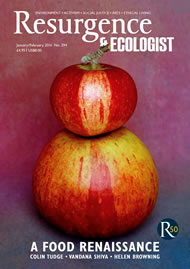The most baffling aspect of climate change is why vast numbers of influential people are resistant to doing anything about it. That clearly astonishes the authors of this book, two American economists who have done an enormous amount of research before plunging into their own analysis.
One does not expect Professor Martin Weitzman from Harvard, or his fellow author Gernot Wagner from the rather staid Environmental Defense Fund to allow their frustration and puzzlement to show through as they review the evidence, but it improves their book no end. They assess the risks as well as the costs and are appalled that so little is being done to avert the impending crisis.
For some reason the fact that the climate of the future will provide a good environment for camels in Canada gets more than one mention in the book. Perhaps for two Americans who view Canada as the frozen north this is a particularly vivid illustration of the world we are creating. This book is therefore not dry economics but through a lot of sums explains to the lay reader why doing something about climate change is urgent and that not doing something is irrational. Simple illustrations of other risks, like car accidents or house fires, that we routinely insure against, help to explain the authors’ shock that we are failing to mitigate the worst effects of climate change.
One of the interesting aspects covered and warned against is geo-engineering. The ideas of putting aerosols in the atmosphere to block out the sun, or iron filings in the sea to promote algae growth are examined and clearly make even less sense to economists than to the rest of us. In the last six months, some serious scientists have come up with the idea of firing 16 rockets a week into the atmosphere in order to cool the planet by 3°C, and a maverick millionaire has already tried the iron filing experiment. Weitzman and Wagner warn against the unknown consequences of such actions.
As the book progresses you realise that the text is slipping further away from economics towards personal action – the ‘what can you do?’ section of the book. This presumably is the influence of the Environmental Defense Fund, which has been campaigning for a long time to persuade America that climate change is a clear and present danger.
The main message is that while personal actions are laudable – recycling, paying voluntary carbon taxes, and so on – that is not enough. You have to do it and shout about it at every available opportunity – or scream, as the authors put it. This involves personal campaigning in your peer group and bothering your local and national politicians until they all do something too.
Judged by the enormity of the subject, the book is remarkably short. Although it is usual for scientists and economists to resort liberally to footnotes, this volume probably holds the record – there are 152 pages of text and more than 100 of notes, bibliography and index. But the notes are themselves interesting and worth a read on their own, because they are both an explanation of the book’s arguments, and full of information.
The title of the book – Climate Shock – seems slightly out of kilter with the carefully crafted arguments within, but it clearly reflects the view of the authors when they had done all their calculations. However, it might put off the readers they most want to convert to their cause: those people of influence who are still in denial. Camels in Canada might have been a better bet to entice new readers to the subject.
For those of us who thought we already knew the risks and are pretty convinced of the urgency, this book is a useful reminder of how little time we have left and the catastrophe that is inevitable unless we do something very quickly. It also provides some pretty useful facts if you want to take the authors’ advice and start persuading those around you and your elected representatives that they ought to make their priority saving civilisation and the planet.







